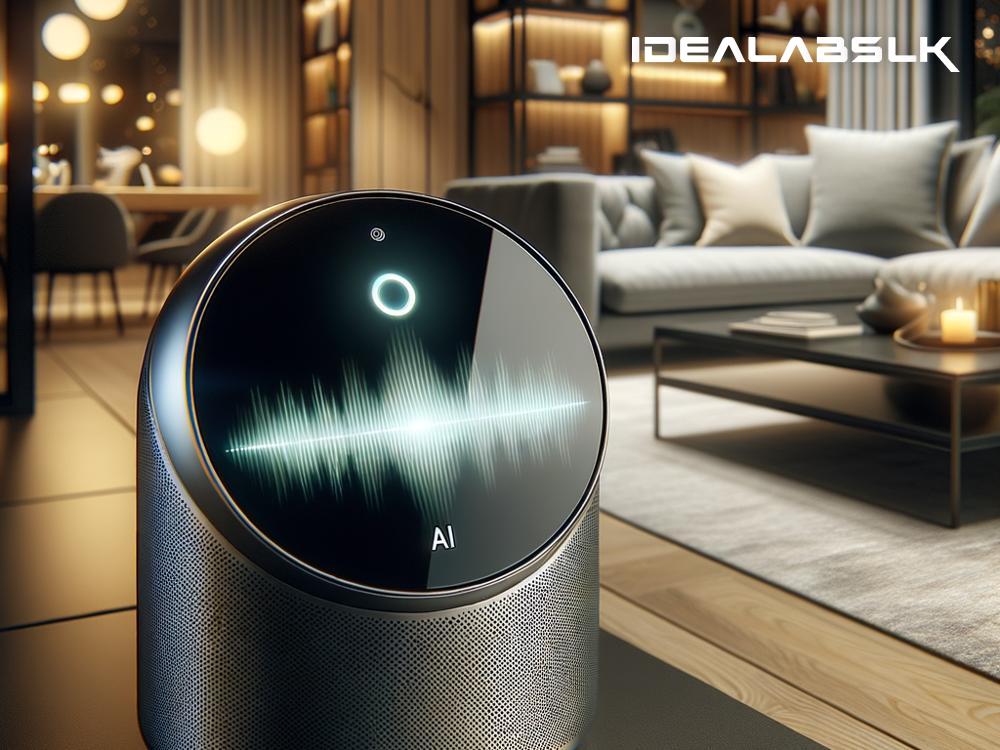Title: How AI is Revolutionizing Small Audio Systems with Smart Adaptive Sound
In the realm of technology, artificial intelligence (AI) is a true game-changer, touching almost every facet of our lives. One area where AI dramatically proves its worth is in enhancing the capabilities of compact audio systems. Gone are the days when large, bulky speakers were the only option for a superior audio experience. Today's small audio devices, powered by AI, can deliver incredibly adaptive sound that rivals—and sometimes even surpasses—their larger predecessors. But how does AI achieve this, and why does it matter? Let's dive into the world of AI-enhanced compact audio systems and explore the magic of adaptive sound.
Firstly, it’s important to understand what we mean by adaptive sound. In essence, it's about creating an audio experience that adapts to the listener's environment, preferences, and even content type—automatically and in real-time. This could mean adjusting the bass and treble levels for a richer sound in a larger room or enhancing the clarity of dialogues when watching a movie. AI makes all this, and more, possible.
1. Understanding Your Environment
One of the first steps AI takes is to analyze the environment. Different spaces have unique acoustic properties; what works in a cozy bedroom might not in an airy living room. Using built-in microphones, AI can measure the room's size, shape, and even the presence of objects that might absorb or reflect sound. With this information, it dynamically adjusts the audio output to ensure the best possible listening experience, no matter where you are.
2. Personalizing Your Experience
AI doesn't stop at understanding your space; it also gets to know you. By learning your preferences over time—like your favorite genres or how you like your movie dialogues to sound—it can tailor the audio experience to suit your taste. This level of personalization means that your compact audio system isn't just playing sound; it's crafting an audio atmosphere that's uniquely yours.
3. Adapting to Different Content Types
What makes a song sound great can be quite different from what makes a podcast or a movie shine. AI recognizes this and can differentiate between various types of content, adjusting its output accordingly. For music, it might bring out the richness of the bass and the clarity of the vocals. For a talk show, it ensures speech is crystal clear. This adaptability ensures that whatever you're listening to, you're getting the best audio experience possible.
4. Enhancing Dialogue Clarity
One remarkable feature of AI in compact audio systems is its ability to enhance dialogue clarity. This is especially beneficial when watching films or TV shows where background music and effects can sometimes drown out speech. AI can isolate spoken words and tweak the sound so that dialogues cut through clearly, ensuring you never miss a crucial piece of the storyline.
5. Delivering Dynamic Soundscapes
Perhaps the most impressive aspect of AI's involvement in audio systems is its ability to create dynamic soundscapes. For instance, AI can simulate a surround sound experience, giving the impression that sound is coming from all around you, even if you're using a single, small speaker. This level of immersion was once only possible with multiple, strategically placed speakers.
6. Constant Learning and Improvement
Lastly, AI systems are designed to learn and improve continuously. They do this by analyzing vast amounts of data on listener preferences and environmental dynamics. This means the more you use your AI-enhanced audio system, the better it gets at delivering a personalized, high-quality sound experience. It's akin to having a sound engineer who knows your preferences inside out, constantly tweaking and improving your audio environment.
In Conclusion:
The era of bulky, one-size-fits-all audio systems is making way for a new generation of smart, compact devices capable of delivering highly adaptive sound. Thanks to AI, these devices can understand our environments and preferences, tailor sound outputs for different content types, and even create immersive soundscapes from single-speaker setups. For audiophiles and casual listeners alike, this means enjoying a customized, high-quality audio experience that breathes new life into music, movies, and more. As AI technology continues to evolve, who knows what other audio miracles it will bring into our homes? One thing is for certain: the future of audio is smart, compact, and incredibly adaptive.

